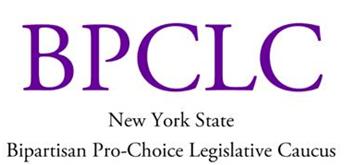|
On Monday, April 30th, 33-year-old Purvi Patel was sentenced by an Indiana court to 20 years in prison on charges of feticide and neglect of a dependent. She is the second woman to be charged with feticide in Indiana, and the first to be convicted.
According to Ms. Patel, she had a miscarriage in which she delivered a stillborn fetus. Suffering from heavy bleeding, she went to the emergency room, where doctors notified the police. Prosecutors alleged that she took abortion medication ordered online, then gave birth to a live fetus that subsequently died as a result of her actions. However, a toxicologist at her trial testified that there was no trace of the medication in her bloodstream, and there was conflicting testimony as to whether or not the fetus was born alive. One of the pathologists testifying for the prosecution used a “lung float test” to determine the fetus was viable, a test that dates from the 17th century and has long been discredited. The following statement was issued in response by Senator Liz Krueger, Co-Chair of the NYS Bipartisan Legislative Pro-Choice Caucus: “From start to finish, the experience of Purvi Patel illustrates the disturbing national trend of criminalizing pregnancy and curtailing the rights of pregnant women. It is a shocking example of feticide laws -- supposedly intended to protect pregnant women -- being used instead by the state to make the outcome of pregnancy the subject of prosecution. Ms. Patel’s already tragic and dangerous situation was made all the worse by the medieval application of these laws and the use by prosecutors of discredited, 17th century forensic methods to secure a conviction. “Ms. Patel has been swept up in a broad and concerted assault on women’s sovereignty over their own bodies and their right to make their own reproductive decisions. State legislatures throughout the country are considering literally hundreds of bills that would restrict access to safe abortions and reproductive healthcare. Increasingly onerous restrictions and prosecutions lead to fear and silence among women, forcing them into dangerous situations that put their health and lives at risk – a return to the grisly days of the back alley. “That is why it is particularly shocking that on Monday the NYS Assembly considered a hostile amendment, put forward by Assembly Member Marcos Crespo and supported by 50 other members, that would have banned funding for abortions through Medicaid, cutting off access to safe procedures for some of New York state’s most vulnerable women. “Instead of criminalizing women, we should be doing a better job of increasing access to birth control, education, support, and safe abortions, and ending the stigma associated with reproductive health issues. The unconscionable injustice of Purvi Patel’s case demonstrates the need for continued action to protect the rights of women in New York and throughout the country.” 38 states have feticide laws on the books, ostensibly to give extra protection to pregnant women. But according to a study by the National Advocates for Pregnant Women, since 1973 there have been hundreds of cases of women arrested for actions deemed harmful to their fetuses, including refusing cesarean sections and taking abortion medication ordered online. Since the 2010 midterm elections, hundreds of anti-choice bills have been introduced in state legislatures across the country, with at least 235 bills introduced in 39 states in the first three months of 2015 alone. Of those, 32 have been passed by at least one chamber, and 11 have either been signed into law or await a governor’s signature. MORE INFO: NY Times: Purvi Patel Could Be Just the Beginning 3/2015 Brief, National Women’s Law Center: The debate over fetal rights is not new to the legislative arena. Every year pro-life and pro-choice advocates vie for the upper hand in this contentious issue. In recent years, states have expanded this debate to include the issue of fetuses killed by violent acts against pregnant women. In some states, legislation has increased the criminal penalties for crimes involving pregnant women. These laws have focused on the harm done to a pregnant woman and the subsequent loss of her pregnancy, but not on the rights of the fetus. Other legislation has defined the fetus as a person under fetal homicide or "feticide" laws. Such legislation is hotly debated under names such as the Fetal Protection Act, the Preborn Victims of Violence Act and the Unborn Victim of Violence Act. Those supporting these acts, often pro-life advocates, say that both the lives of the pregnant woman and the fetus should be explicitly protected. They assert that fetal homicide laws justly criminalize these cases and provide an opportunity to protect unborn children and their mothers. Those on the other side feel that laws to protect a fetus could become a "slippery slope" that could jeopardize a woman's right to choose an abortion. Pro-choice advocates say such laws grant a fetus legal status distinct from the pregnant woman - possibly creating an adversarial relationship between a woman and her baby. They are also concerned that the laws could be interpreted to apply to a woman's behavior during her pregnancy (such as smoking, drinking or using drugs). They prefer criminalizing an assault on a pregnant woman and recognizing her as the only victim. Currently, at least 38 states have fetal homicide laws. At least 23 states have fetal homicide laws that apply to the earliest stages of pregnancy ("any state of gestation," "conception," "fertilization," or "post-fertilization"). (click here for a summary of state laws)
0 Comments
|
Archives
June 2023
Categories |
Proudly powered by Weebly

 RSS Feed
RSS Feed